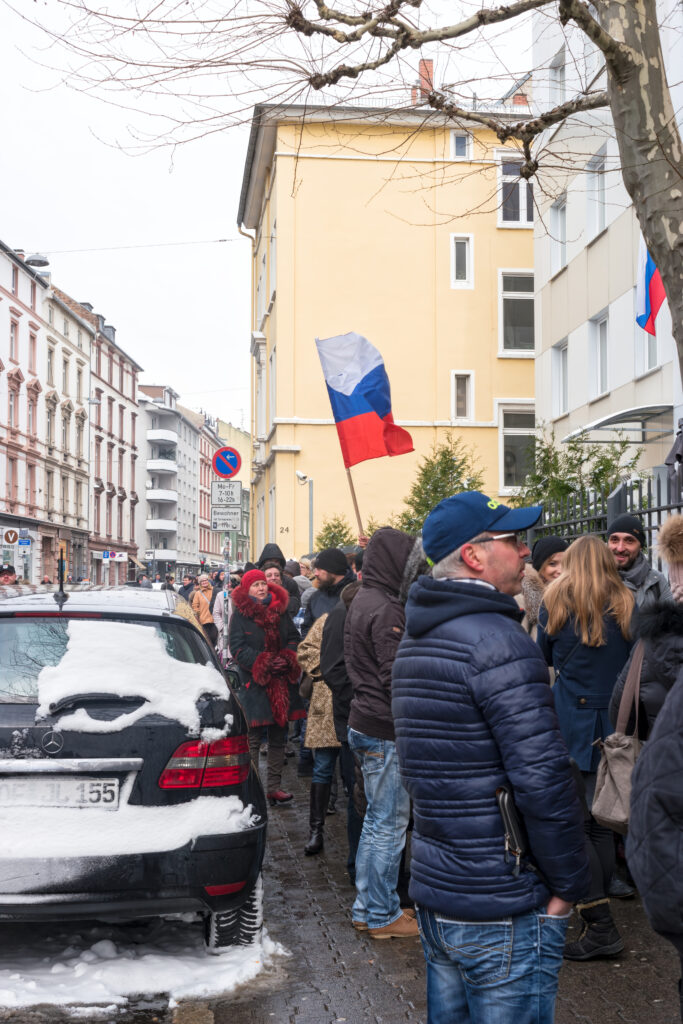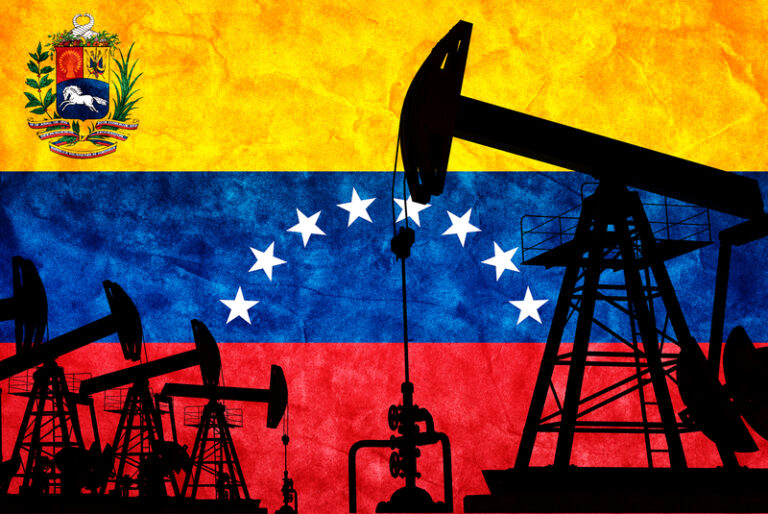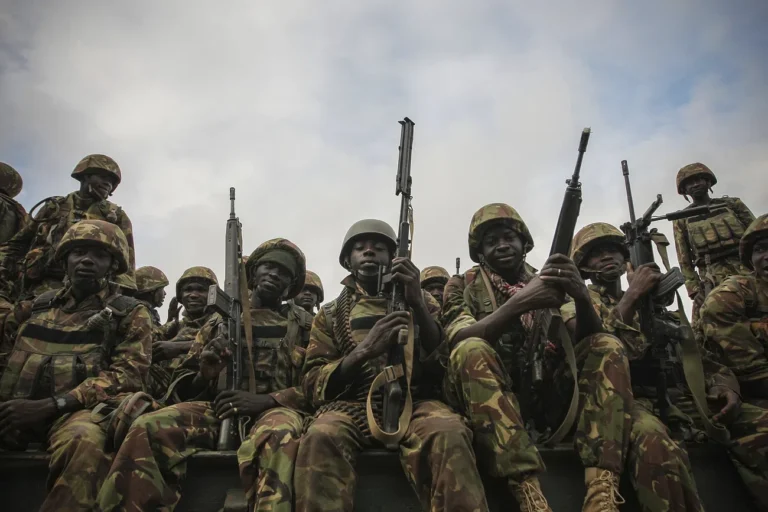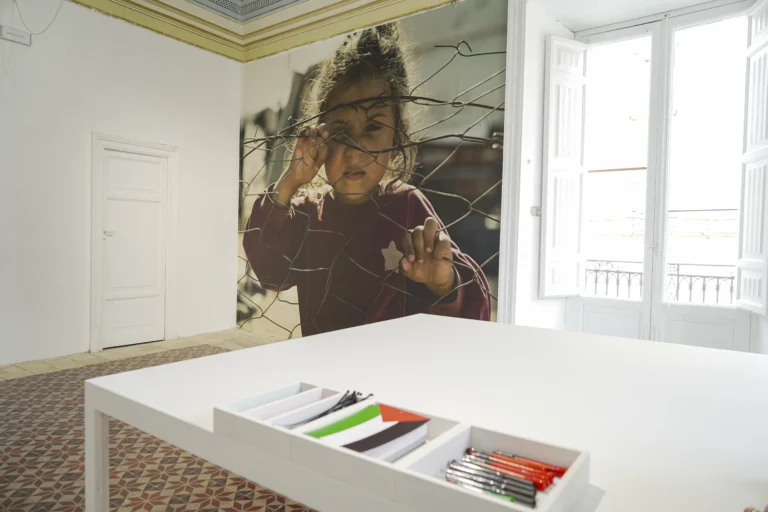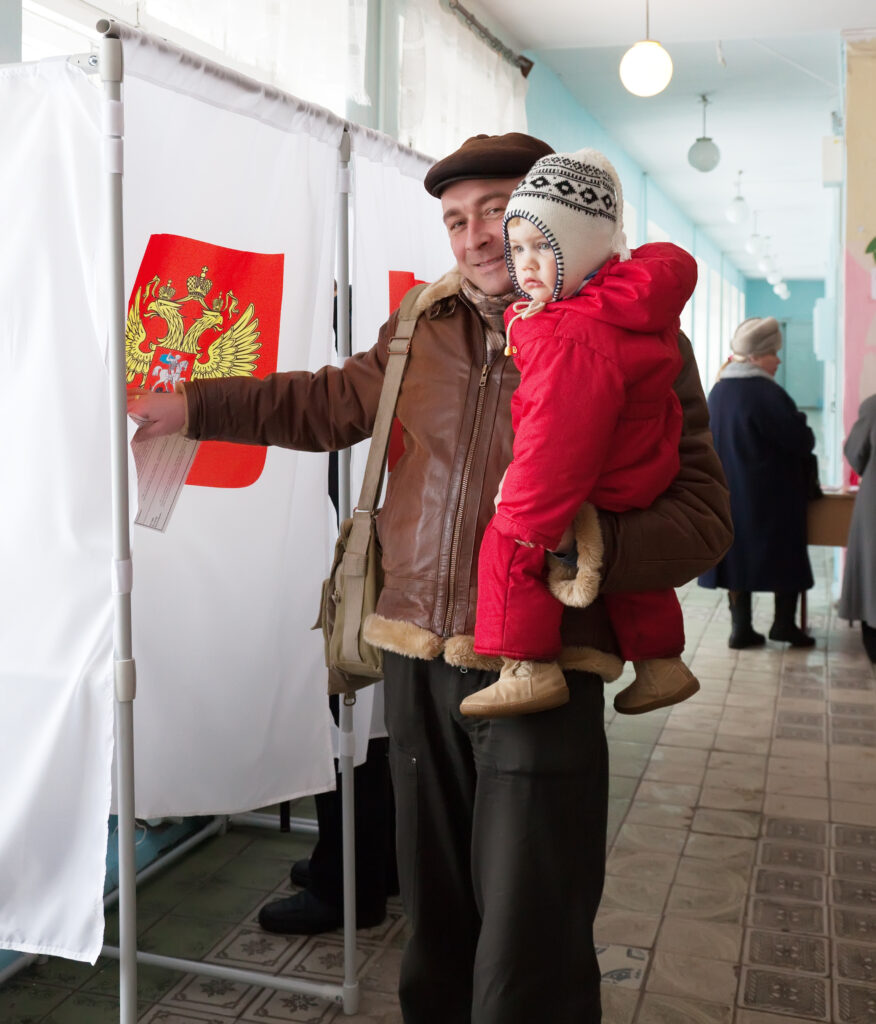
Putin overcame, as everyone expected. The outcome of these ‘farce’ elections had been written for months, and as every time, the prediction was fulfilled. The Tsar must come out of it happy, because the 87% of votes announced on Sunday evening far exceeded the Kremlin’s target of over 80%. This election is the definitive consecration of Putin as Russia’s father-in-chief, always stronger in command. In office since 2000, when he was first elected to the presidential elections, the Tsar has been in power for 24 years, 20 of these spent in the presidential office. In the meantime, he has taken the opportunity to change the Russian constitution so that he can de facto hold the position for life. The two-year term limit has been far exceeded, not surprising by this point – see the Chinese case – and the term increased from four to six years in 2012. In brief, the Tsar seems to be destined to remain in the history books, remaining in power longer than Stalin and the enlightened despot Catherine II.
Putin’s ‘opponents’, if they can be called that, were three, and in the end not so different from the president himself. Leonid Slutsky, an extreme right-wing businessman, more hardline than Putin himself in some ideas, such as on the Ukrainian invasion, mentioned several times the need for a quick victory in the name of ‘Russian freedom’. Then Nikolai Charitonov, the usual communist candidate who runs and punctually takes a percentage of around 10%, appealing to the most nostalgic voters. In this case, however, the votes taken stop at 3%, partly due to the fact that his ideas are largely the same as those of the president: the need for a quick victory, the arrival of an interventionist economy, etc. Leitmotivs that have never left the Russian public debate. Lastly, we find Vladislav Davankov, considered the most presentable candidate, because he is the only one to have uttered the word ‘peace’. To his CV, however, can be added a series of sanctions by the US, EU and UK. Promising, no? It is needless to say that all the candidates have never publicly opposed Putin, often sharing the same policies as their opponent. On the other hand, the two potential ‘problems’ for Putin, the pacifist candidates Yekaterina Duncova and Boris Nadeždin, were promptly banned by the Kremlin for signature irregularities.
A video of a soldier, holding a Kalashnikov, about to check the voting booth between votes has gone viral in recent days. A rather emblematic image, which synthesises the Russian case.
The elections were not open to OSCE observers and voting was ‘scattered’ over three days, with the possibility that the results could be tampered with overnight. Electric voting, included for the first time, was another opportunity not only to falsify the elections, but also to track citizens, who had to confirm that they had registered to vote.
However, it would be pleonastic to continue discussing the lack of transparency in the elections or Russia’s methods of repression. All these elements, however serious, remain merely superstructure. Instead, it is interesting to focus on the true significance of these elections on the Russian population and the fate of war. Precisely ‘war’ is the key term to start with in this analysis. Because the citizens went to the polls for the first time since Moscow invaded Ukraine two years ago. Russian society, therefore, is a society at war, already complex in itself, and which today seems even more difficult to understand. Certainly, the situation is quite different from what Washington and Brussels would have expected two years ago. The country apparently seems to be resisting, at least for the time being, on the macroeconomic level, also thanks to the now solid understanding with the Chinese economy, although it would seem more accurate to define Moscow as now completely dependent on Beijing. Although the general situation will certainly have a negative
impact on the Russian market (see already the unsustainable military expenditure), for the moment, as is natural in a war economy, we are seeing an important increase in industrial production, which translates immediately into an increase in the demand for labour and therefore in wealth for Russian society.
The Tsar harshly suppressed all internal difficulties such as opposition to the war and protests over Navalny’s death, managing, at least apparently, to limit the damage of economic sanctions.
It must be emphasised that Putin has not lost consensus in his country. On the contrary, as Denis Volkov, head of Russia’s only internationally recognised independent polling institute, points out in an interview, the consensus around Putin is real. In fact, the president relies not only on strong media censorship, but also on propaganda that is efficient in every respect, with militarisation as a pivotal point and starting from primary school. A veritable society at war. Historical courses and recourses that punctually return, as the good Giambattista Vico would have said.
The only ‘substantial’ attempt to stage an opposition was that of Julija Naval’naja, who continued her husband’s battle for freedom. The appointment was at 12 noon on Sunday, 17 March, when thousands of people were called to appear in front of the polling stations to express their dissent also visually – with long queues. A right, courageous action, which unfortunately was in some cases brutally repressed by the authorities. In some cases, more than 70 arrests were made.
But are we really sure that a ‘different Russia’, which is seen in glimpses but never fully emerges, will be able to impose itself on Moscow’s political chessboard? In a society based on the poniatiya, the code of honour of prison and ‘men of respect’, as the historian Sergueï Medvedev recalled in a recent interview to ‘Le Monde’, it is quite difficult to think of an evolution towards a democratic regime as we understand it. The war dimension is also perhaps the one that Moscow knows best historically, considering how Russia has never been an industrial or agricultural power.
Putin’s victory is a demonstration of his total control over the population of that immense country, the majority of which, by the way, is in favour of the Ukrainian invasion. A reality that appears uncomfortable to us in the West, but which should lead us to even more decisive opposition against the danger that the Russian Tsar may now represent for world peace.
Leone Ronchetti
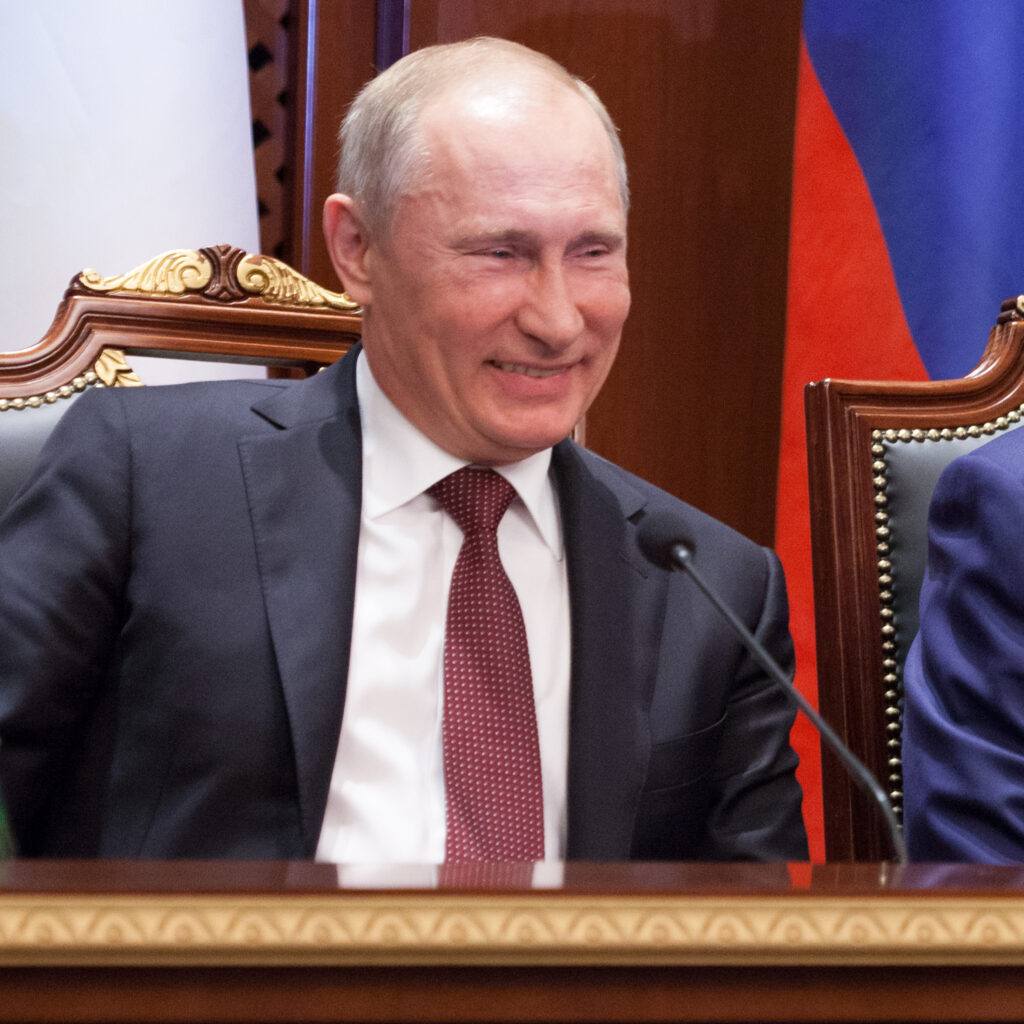
Italian Version
Putin ha stravinto, come tutti si aspettavano. L’andamento di queste elezioni “farsa” era scritto da mesi e come ogni volta il pronostico è stato rispettato. Lo Zar ne deve uscire contento, perché l’87% di voti comunicato domenica sera supera di gran lunga gli obbiettivi prefissati dal Cremlino, ovvero oltrepassare l’80%. Questa elezione è la definitiva consacrazione di Putin a padre-padrone della Russia, sempre più forte al comando. In carica dal 2000, quando per la prima volta fu eletto alle presidenziali, lo Zar mantiene il potere da 24 anni, 20 di questi passati nell’ufficio presidenziale. Nel frattempo ne ha approfittato per cambiare la costituzione russa in modo tale da poter mantenere de facto la carica a vita. Il limite di mandato di due anni è stato ampiamente superato, non sorprende più di tanto oramai – si veda il caso cinese – e la durata è passata nel 2012 da 4 a 6 anni. Insomma, lo Zar sembra essere destinato a voler rimanere nei libri di storia, rimanendo al potere più di Stalin e della despota illuminata Caterina II.
Gli “avversari” di Putin, se così si possono definire, erano tre, ed in fin dei conti non così diversi dal presidente stesso. Leonid Slutsky, imprenditore di estrema destra, più duro di Putin stesso in alcune idee, come sulla invasione Ucraina, ha ricordato varie volte la necessità di una vittoria rapida in nome della “libertà russa”. Poi Nikolaj Charitonov, solito candidato comunista che corre e che puntualmente prende una percentuale intorno al 10%, facendo leva sugli agricoltori più nostalgici. In questo caso però i voti presi si fermano al 3%, complice anche il fatto che le sue idee sono in larga parte uguali a quelle del presidente: necessità di una vittoria rapida, arrivo di un’economia interventista ecc. Leitmotiv che mai hanno abbandonato il dibattito pubblico russo. Come ultimo troviamo Vladislav Davankov, considerato il candidato più presentabile, perché l’unico ad aver pronunciato la parola “pace”. Al suo curriculum si può però aggiungere una serie di sanzioni da parte di USA, UE ed UK. Promettente no? Inutile dire che tutti i candidati mai si sono opposti pubblicamente a Putin, condividendo spesso le stesse politiche del proprio avversario. D’altronde, i due potenziali “problemi” per Putin, ovvero i candidati pacifisti Yekaterina Duncova e Boris Nadeždin, sono stati prontamente banditi dal Cremlino per irregolarità delle firme.
Virale in questi giorni è diventato il video di un soldato, con tanto di Kalashnikov in mano, che è in procinto di controllare la cabina elettorale fra un voto e l’altro. Un’immagine alquanto emblematica, che sintetizza il caso russo.
Le elezioni non sono state aperte agli osservatori OSCE e il voto è stato “spalmato” su tre giorni, con la possibilità che i risultati potessero venir manomessi da una notte all’altra. Il voto elettrico, inserito per la prima volta, è stato un’altra occasione non solo per falsificare le elezioni, ma anche per tracciare i cittadini, che dovevano confermare di aver aderito alla votazione.
Tuttavia risulterebbe pleonastico continuare a discutere sulla poca trasparenza delle elezioni o dei metodi di repressione russa. Tutti questi elementi, per quanto gravi, rimangono mera sovrastruttura. Interessante è invece soffermarsi sul vero significato di queste elezioni sulla popolazione russa e sul destino di guerra. Proprio “guerra” è il termine fondamentale per partire con questa analisi. Perché i cittadini sono andati al voto per la prima volta da quando, due anni fa, Mosca ha invaso l’Ucraina. Quella russa, quindi, è una società in guerra, già complessa di suo, e che oggi sembra ancora più difficile da comprendere. Sicuramente la situazione è ben diversa da come Washington e Bruxelles si sarebbero aspettati due anni fa. Il paese sembra apparentemente resistere, almeno per il momento, sul piano macroeconomico, anche grazie all’ormai solida intesa con l’economia cinese, anche se parrebbe più azzeccato definire Mosca come oramai
completamente dipendente da Pechino. Sebbene la situazione generale avrà sicuramente degli impatti negativi sul mercato russo (si veda già l’insostenibile spesa militare), per il momento, come è naturale che sia trovandosi in un’economia di guerra, registriamo un importante aumento della produzione industriale, il che si traduce nell’immediato in un incremento della richiesta di mano d’opera e quindi della ricchezza per la società russa.
Lo Zar ha represso duramente tutte le difficoltà interne come le opposizioni alla guerra e le proteste per la morte di Navalny, riuscendo, almeno apparentemente, a limitare il danno delle sanzioni economiche.
È necessario sottolineare come Putin non abbia perso consenso nel suo paese. Anzi, al contrario, come rileva in una intervista Denis Volkov, a capo l’unico istituto di sondaggi russi riconosciuto come indipendente a livello internazionali, il consenso attorno a Putin è reale. Il presidente si avvale infatti non solo di una forte censura mediatica, ma anche di una propaganda efficace sotto ogni aspetto, che vede la militarizzazione come punto cardine e che parte dalla scuola primaria. Una vera e propria società in guerra. Corsi e ricorsi storici che puntualmente si ripresentano, come avrebbe detto il buon Giambattista Vico.
L’unico “sostanzioso” tentativo di mettere in atto un’opposizione è quello di Julija Naval’naja, che prosegue la battaglia di libertà del marito. L’appuntamento era alle 12 di domenica 17 marzo, quando migliaia di persone sono state chiamate a presentarsi davanti ai seggi per esprimere anche visivamente – con lunghe code – il loro dissenso. Azione giusta, coraggiosa, che purtroppo è stata in alcuni casi repressa brutalmente da parte delle autorità. Si contano infatti più di 70 arresti.
Ma siamo veramente sicuri che una “Russia diversa”, che si vede a sprazzi, ma che mai emerge completamente, potrà imporsi nello scacchiere politico di Mosca? In una società basata sulla poniatiya, il codice d’onore della prigione e degli “uomini di rispetto”, come ricordava lo storico Sergueï Medvedev in una recente intervista a “Le Monde”, risulta alquanto difficile pensare ad un’evoluzione verso un regime democratico come lo intendiamo noi. La dimensione bellica è inoltre forse quella che storicamente Mosca conosce meglio, considerando come la Russia non sia mai stata una potenza industriale o agricola.
La vittoria di Putin è la dimostrazione del suo controllo totale sulla popolazione di quell’immenso paese, che fra l’altro in maggioranza è schierata a favore dell’invasione ucraina. Una realtà che a noi occidentali appare scomoda, ma che dovrebbe indurci a una opposizione ancora più decisa contro il pericolo che lo Zar russo oggi può rappresentare per la pace mondiale.
Leone Ronchetti
